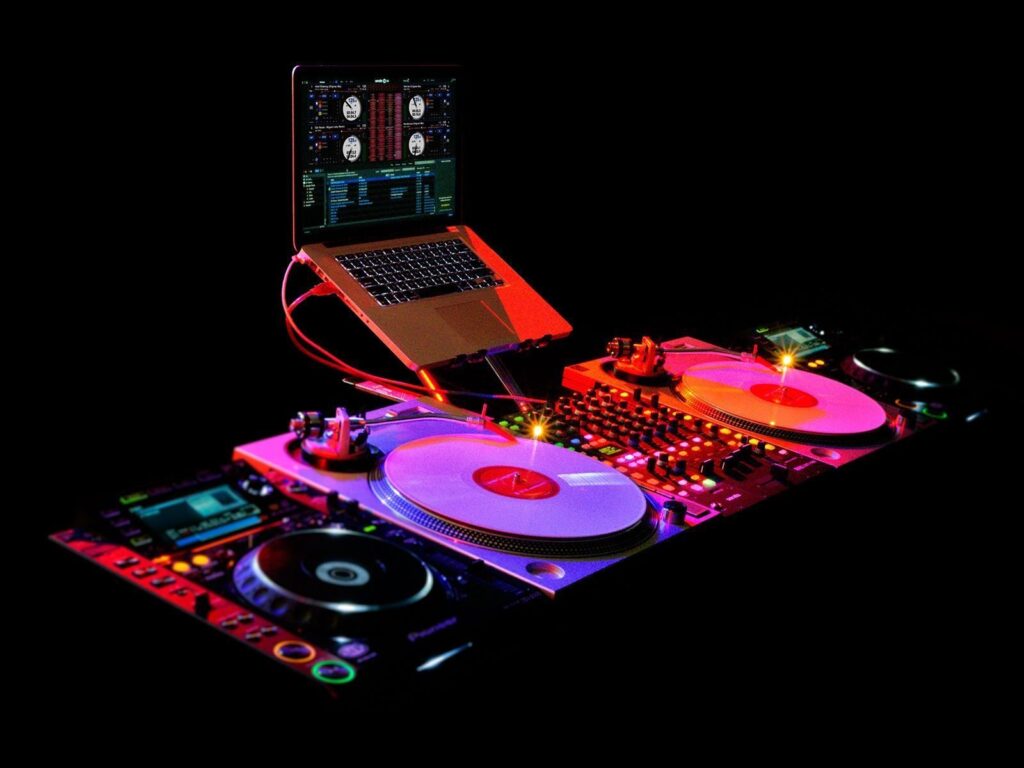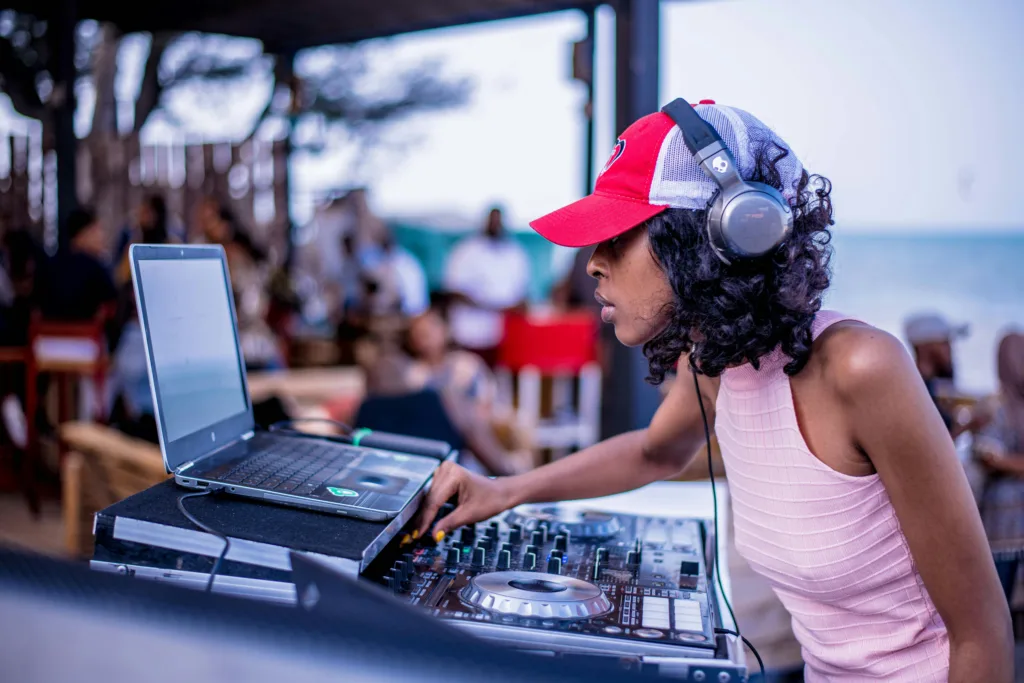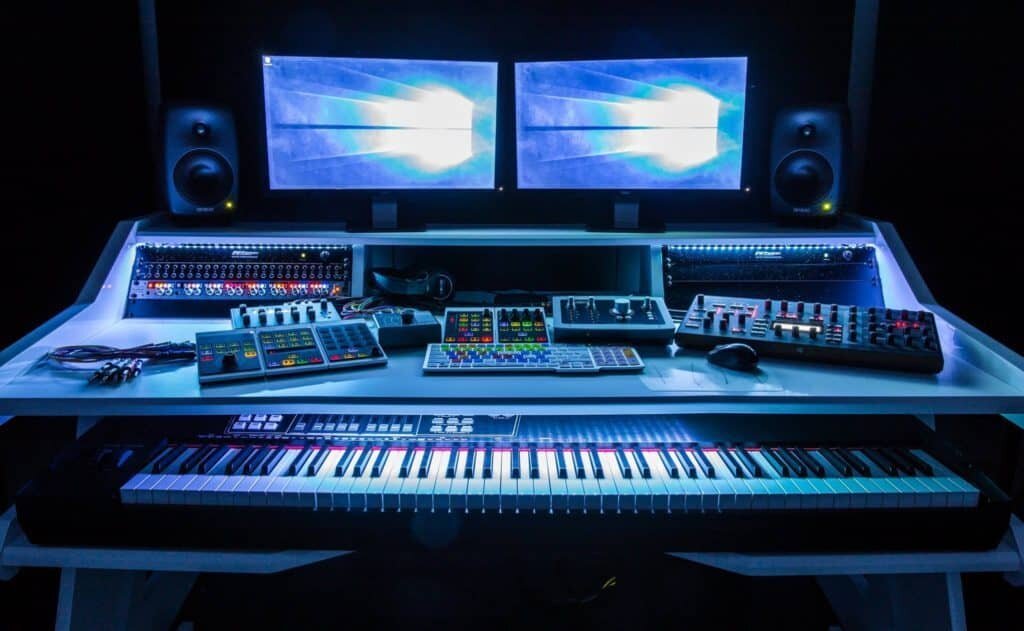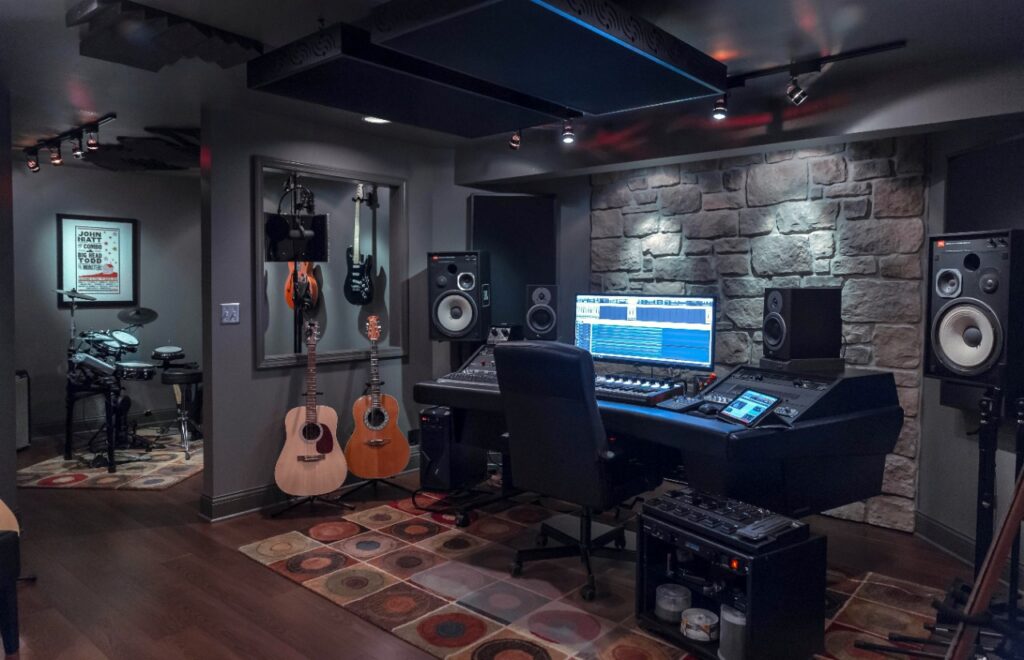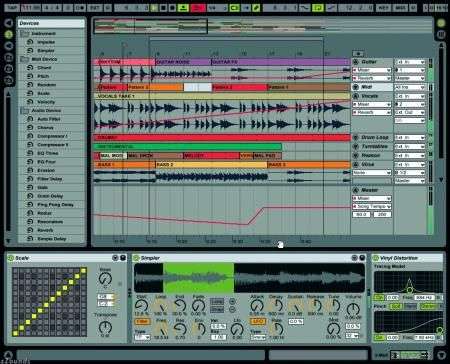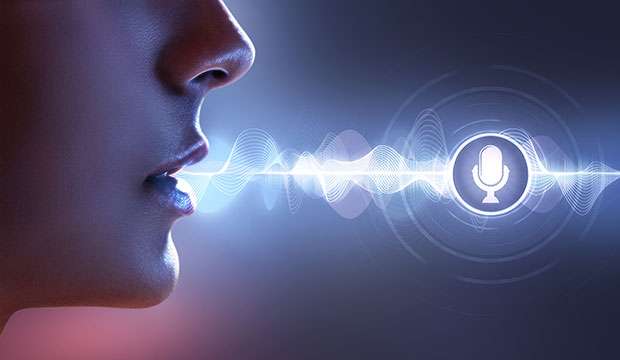DJ & Audio Courses
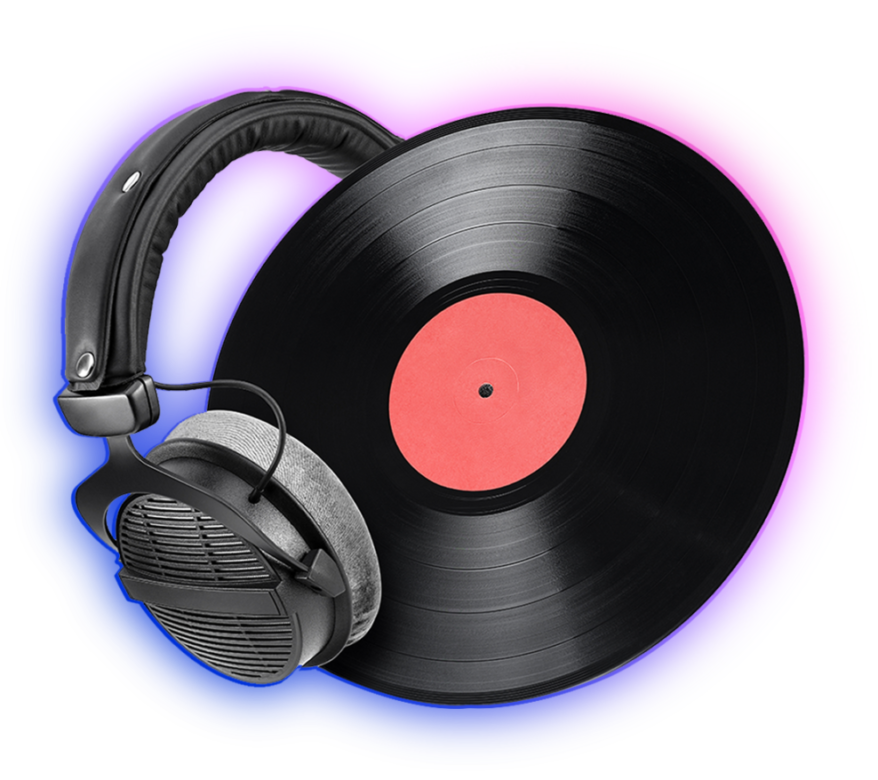
Key Points Of The Audio Culture Courses
Learn from Professionals
Certified Course
Maximum 3 Students In a Batch
Convenient Course Timings
Flexible Payment Options (EMI, Part Payment, Card Payment, Net Banking etc.)
- CDJ-2000NXS Pro-grade digital DJ deck (black)
- Sessions – 24 Sessions
- Months – 3 months
- Weekly – 3 Days a week
- Time – 1 Hour
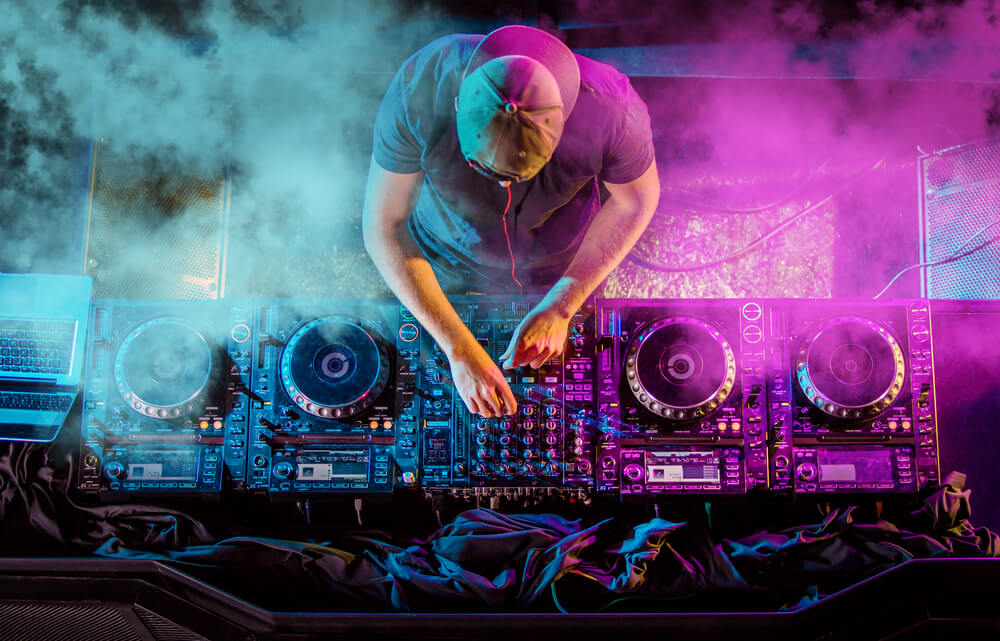
- Evolutionary Perspective
- Social and Cultural Functions
- Cognitive Development
- Early Beginnings
- Rise of Radio DJs
- Emergence of Club DJs (1970s)
- The Disco Revolution
- Technological Innovations (1980s)
- Mainstream Popularity
- Digital Era and Modern DJing
- What is a CDJ/XDJ/DJM ?
- Key Elements of Sound Theory
- Sound Waves
- Timbre
- Pitch
- Scales
- Intervals
- Chords
- Harmony
- Melody
- Rhythm
- Counterpoint: The art of combining different melodic lines in a musical composition.
- Form: The structure of a musical composition, such as binary, ternary, rondo, and sonata.
- Dynamics: The varying levels of volume in a musical performance, indicated by terms such as pianissimo (very soft), forte (loud), and crescendo (gradually louder)
- Electronic Music and Sound Synthesis
- Classical
- Jazz
- Rock
- Pop
- Hip-Hop/Rap
- Electronic Dance Music (EDM)
- Country
- Blues
- Folk
- World Music
- House
- Techno
- Many More……
- Strings
- Woodwinds
- Brass
- Percussion
- Keyboard
- Electronic
- Intro
- Verse
- Pre-Chorus (Build)
- Chorus (Drop)
- Bridge
- Breakdown
- Drop
- Outro
- Cue
- Hot Cue
- Pre-Set Hot Cues
- Use for Looping
- Color Coding
- Practice Timing
- Steps for Beat Matching
- How to count BPM ?
- Why Beatmatching is important?
- Basics of Beat match
- Get Used To Counting Beats And Feeling The Pulse
- What does actually EQing do?
- Understanding EQs and Basic EQ Parameters
- EQ Gain
- Channel Gain
- TYPES OF EQ (EQUALIZER and ISOLATOR)
- Parametric EQ
- EQ Filters
- When to use EQs?
- How to mix with EQing ?
- How to get a good sound by the mixer
- Beat FXs (Delay, Echo, Jet, Filter, Phaser, Trans, Gate/Comp, Reverse, Space Beat Roll, Vinyl Brake, Looper, Slip.
- Sound Color FXs (Crush, Dub Echo, Space, Filter, Noise, Sweep.
- Camelot Theory
- Reading Camelot Wheel
- know about Camelot Value
- Match Types
- Energy Changes
- Harmonic Mixing
- Sessions – 12 Sessions
- Months – 1 months
- Weekly – 3 Days a week
- Time – 1 Hour
- Preparing Rekordbox
- Installing
- Launching
- Setting Up
- Operational Panel
- Function Panel – Memory, Hot Cue, Info, Wave Forms, Loops, Beat Syncs.
- Recording Panel and Browser Panel
- Analyzing Music
- Using USB Storage Devices for DJ Performance
- How to Use Various Features
- Navigating the Controller DJ dashboard and each of its individual components.
- Using Rekordbox with a DJ Controller / DJ Player
- Connecting & Controlling DJ Controller
- Mapping and using a MIDI controller
- Music Files and Their Compatible Formats
- Performance Pads, Effect Function, JOG Panel, Recording Panel, Mixer Panel
- How to Use Various Features ?

- Sessions – 12 Sessions
- Months – 1 months
- Weekly – 3 Days a week
- Time – 1 Hour
- Beginner Basics
- Understanding Resolume Interface
- Triggering video and still images
- Mapping and using a MIDI controller
- Content, codecs and formats
- Build your own workspace and presets
- Creating and recording content
- Setting up for a gig
- Advanced software and hardware setup
- Flash and Quartz Composer
- Alpha channels and masks
- Animating Parameters
- Auto Pilot Sequencing
- Audio Analysis
- Advanced Output Settings
- DAW/Software
- Pro Tools
- Logic Pro
- Cubase
- FL Studio
- Ableton
- Sessions – 150+
- Duration- 1 Year
- Weekly – 3 Days a week
- Time – 1 Hour
|
- Operating System and Audio Engine Workflow
- Understanding DAW Advanced Features
- Signal Routing Basics
- Project Setup and Management
- File Formats and Compatibility
- How to Export Files
- DAW Tools and Shortcuts
- Using Plugins and Effects
- Saving and Organizing Projects
- Basic of Composition
- How to Compose Music Pieces
- Uses of Chords Progression
- Raga and Scales Explained
- MIDI Signals
- Using the Piano Roll
- Drum Editor Basics
- MIDI Expression Control
- Quantizing Notes
- MIDI Editor Tools
- Importing and Exporting MIDI Files
- Understanding All CC MIDI Signals
- Using Samplers
- Rhythm Sampler Basics
- Understanding ADSR (Attack, Decay, Sustain, Release)
- Sound Design and Synthesis
- Oscillators
- Monophonic and Polyphonic Sounds
- Sound Processing Techniques
- Music Production Techniques
- Song-Making Process
- Creating Melodies
- Arpeggio Patterns
- Music Arrangement Techniques
- Rhythm Arrangement
- Indian Percussion Arrangement
- Guitar Arrangement
- Song Backing
- Arranging Music Pieces
- Symphony Orchestra Arrangement
- Song Backing Techniques
- Vocal Processing
- Exploring Different Genres of Music Production and Arrangement
- VST Plugins – Instruments
- VST Plugins – Effects and Dynamics
- Using Stock Plugins
- Serial Background Score
- Film Background Score
- SFX (Sound Effects)
- Ambience of Sound
- Character of Sound
- Frequency, Amplitude, Sound Travel, and Wavelength
- Understanding Harmonics and Overtones
- Basics of Studio Acoustics
- Power Supply in Audio Systems
- Amplifiers and Preamps
- Mono vs. Stereo Signals
- Interface and Mixer Setup
- Operating System
- Types of Microphones
- Miking Techniques
- Recording Basics
- Vocal Recording Techniques
- Video Dubbing Basics
- Live Instrument Recording
- Introduction to Mixing
- Basic Sound Engineering
- Balancing and Tonal Shaping
- Advanced Sound Processing
- Audio Effects
- Equalizer and Dynamics
- Arrange project for Mixing
- Mixing Different Song Genres
- Mastering
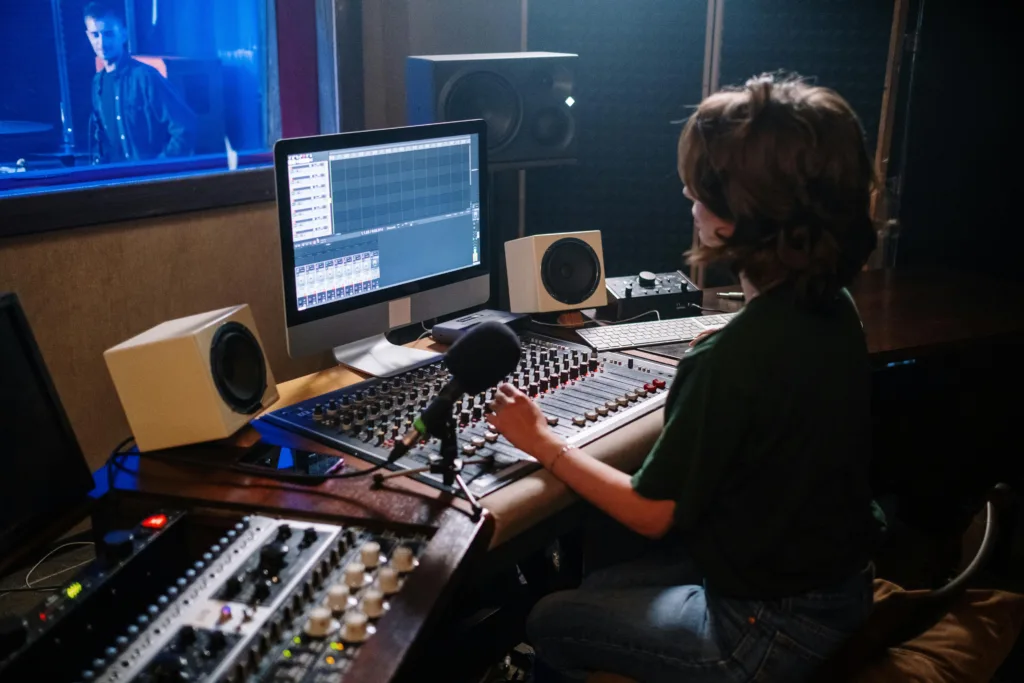
- DAW/Software
- Pro Tools
- Logic Pro
- Cubase
- FL Studio
- Ableton
- Sessions – 75+
- Duration- 6 Month
- Weekly – 3 Days a week
- Time – 1 Hour
- Music Theory
- Scale Formulas
- Chords Formulas
- Modes of Scales
- Chord Progressions
- Time Signatures
- Basics of Staff Notation
- Instrument Ranges (Compass of Instruments)
- Ear Training
- DAW Advanced Features
- Project Arrangement
- File Formats
- Exporting Files
- Sampler
- Synthesis
- Monophonic and Polyphonic Types
- Sound Processing
- Different Genres of Music Production
- VST Plugins – Instruments
- VST Plugins – Effects and Dynamics
- Using Stock Plugins
- Melody
- Arpeggio Patterns
- Rhythm Arrangement
- Guitar Arrangement
- Music Arrangement
- Song Backing
- Vocal Processing
- Frequency, Amplitude, Sound Travel, Wavelength
- Harmonics and Overtones
- Studio Acoustics
- Amplifiers/Preamps
- Mono vs. Stereo Signals
- Interface and Mixer Setup
- Microphones
- Recording
- Miking Techniques
- Introduction to Mixing
- Balancing and Tonal Shaping
- Sound Processing
- Audio Effects
- Mastering

- DAW/Software
- Pro Tools
- Logic Pro
- Cubase
- FL Studio
- Ableton
- Sessions – 24+
- Duration- 2 Month
- Weekly – 3 Days a week
- Time – 1 Hour
- Frequency, Amplitude, Sound Travel, and Wavelength
- Understanding Harmonics and Overtones
- Basics of Studio Acoustics
- Power Supply in Audio Systems
- Amplifiers and Preamps
- Mono vs. Stereo Signals
- Interface and Mixer Setup
- Operating System
- Diffusion
- Absorbers
- Acoustic Material
- Electricity supply
- Colors
- Types of Microphones
- Micing Techniques
- Recording Basics
- Vocal Recording Techniques
- Video Dubbing Basics
- Live Instrument Recording
- Serial Background Score
- SFX (Sound Effects)
- Ambience of Sound
- Introduction to Mixing
- Basic Sound Engineering
- Balancing and Tonal Shaping
- Advanced Sound Processing
- Audio Effects
- Equalizer and Dynamics
- Arrange project for Mixing
- Mixing Different Song Genres
- Mastering
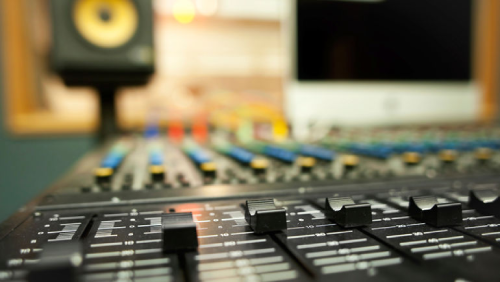
- Sessions – 60+
- Duration- 1 Month
- Weekly – 3 Days a week
- Time – 2 Hour
- Integrated- theoretical, practical, studio experience
- How your voice works — how your vocal cords, the parts that amplify sound (lungs, throat, and mouth), and the parts that shape words all work together to make the sounds you hear.
- Respiratory System – (श्वसन प्रणाली)
- Phonatory System – (स्वर प्रणाली)
- Resonatory System – (निनाद प्रणाली)
- Articulatory System – (उच्चार प्रणाली)
- How speech sounds are produced and used in communication.
- What Are Linguistic Vocal Sounds?
- How Are Sounds Made?
- Types of Sounds
- How can we improve our pronunciation skills?
- How to improve your enunciation skill ?
- Technical features of vocalics in media.
- Voice-over presentation on a project.
- Microphone techniques
- voiceover samples
- dubbing samples, and many more.
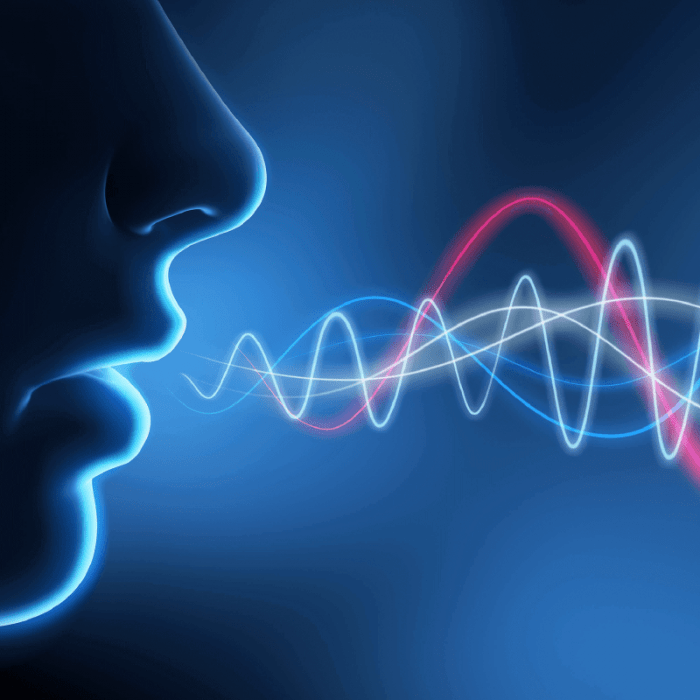
- Sessions – 60+
- Duration- 1 Month
- Weekly – 3 Days a week
- Time – 2 Hour
- Integrated- theoretical, practical, studio experience
- Piano & Keyboard Information
- Octaves & Keys
- Key Action
- Synthesizer vs. Keyboard vs. Piano
- 12-Note Information & Diagram
- Major and Minor Scales
- Major and Minor Scale Formula
- Major and Minor Chord and it’s Formulas
- Inversion
- Harmony
- Tonic Note
- Power Chord
- Bass & Pluck
- One-Three-Five Chord Arpeggios
- One-Five-Eight Chord Arpeggios
- Some Extra Arpeggio Patterns
- 4/4 Time Signature
- 3/4 Time Signature
- 2/4 Time Signature
- 6/8 Time Signature
Innovation from opportunities available can-do wonders for you. The suggestion here is that modern technology has moved creativity forward. The Audio Culture is a modest project studio, a source of creative inspiration and cultural study. It exerts a powerful influence through its accessibility, simple functionality and connectivity to the internet. Digital audio courses will give you the knowledge and information about tools that you need to record and produce professional sounding music. You will begin developing your identity, vision, and intention as an artist. The Audio Culture offers electronic music production course as well as a Diploma in Audio Engineering.
electronic music production course techniques: The courses are designed for various skill levels, from beginners to more advanced producers.
We cover a wide range of topics, including software like
Ableton, Pro-tools, FL Studio, Cubase, etc.
Diploma in Audio Engineering covers the entire syllabus from audio physics to electronic music production course including Vocal and Instruments live recording.
Furthermore, if you’re willing to evolve your music skills with a renewed sense you can go for digital audio courses. With the larger scope of recording studios, it has inspired a global movement of new ideas and music creation. Such online recording studios encourage fresh talent to showcase their skills. In case if you’re looking for an online music recording studio, The Audio Culture online music recording studio Pune can be a perfect place for you. Refine your skills with dedication and learn from the experts.
Click to visit us for complete information on our music academy in Pune.






